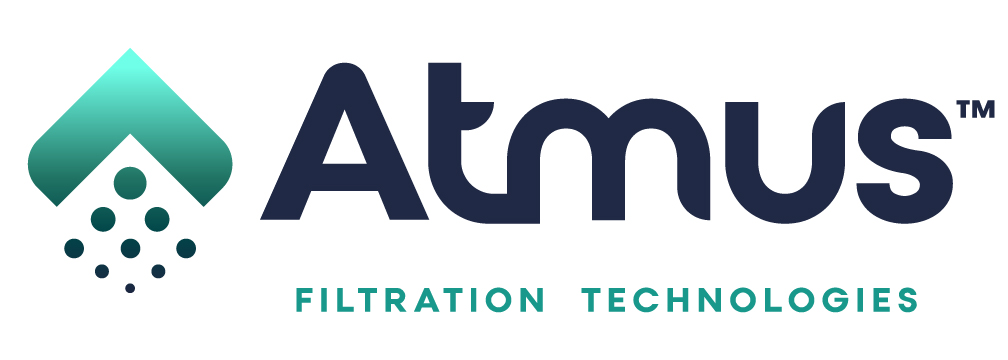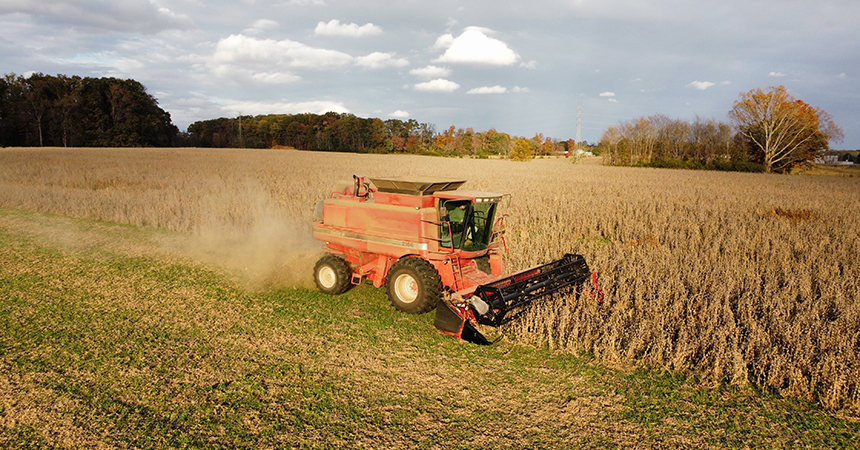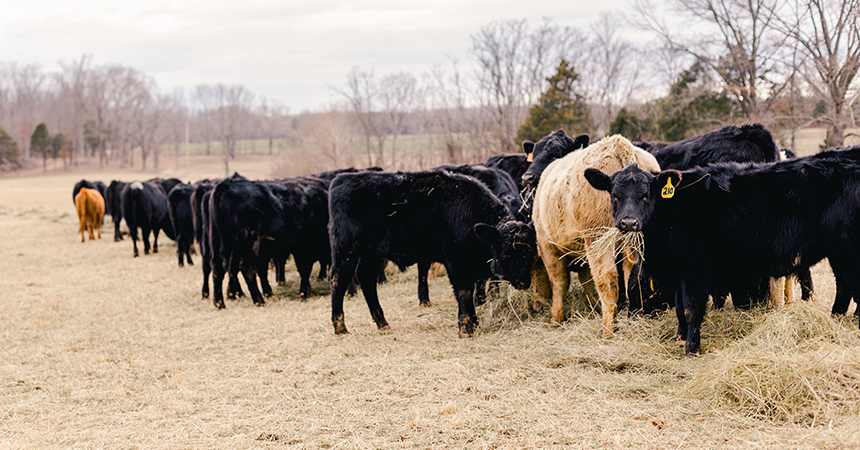Laying Down Roots: How I’m Protecting My Community

My name is Justin Douglass, and there are two things you need to know about me. 1) I’m proud to be from the great state of Tennessee. And 2) I am a problem solver. I studied mechanical engineering at Tennessee Tech University in Cookeville, Tennessee (U.S.). I met my wife Lexi there. As soon as I graduated, I went across town to join Atmus Filtration Technologies.
Lexi and I decided we wanted to put down our roots right here in Cookeville, but I wanted to put down more roots than most. Because there’s actually a third thing you ought to know about me: I’m also a farmer.
I’m not what some folks would call a “proper” full-time farmer. I’m what you might call a “nights and weekends” farmer. I still go to work at Atmus every day. But when I’m not at Atmus, you’ll probably find me working away on my farm.
I grew up around farms, you see. Four generations of my family have been “nights and weekends” farmers. So I guess you could say it’s in my blood.
When I was a kid, my parents ran a farm where my brother and I grew up. I spent all the time I could there because I loved to watch things grow. Caring for crops and livestock meant that I had to know their needs and make sure that they were provided for. Some days, that looked like healing a sick calf; other days, it was ensuring a tender young plant had all the nutrients needed to thrive. I learned that great things don’t just happen by chance; they take careful planning, daily attention and consistent execution. I carry the lessons I learned on the farm into work every single day at Atmus.
Maintaining a “Can We Fix It?” Attitude
My dad used a lot of old hand-me-down equipment — some over 50 years old. When we would fix and maintain that equipment, I gained an appreciation of how things were engineered in the past, and how they have stood the test of time. No matter if a machine is new or old, it will break down from time to time. Dad taught me not just how to fix things, but also to ask, “Why did it break in the first place?” and “How can we fix it so it won’t break again?”
It’s an approach that’s served me well as an engineer at Atmus.
Protecting What We Love Most
My dad’s job involved a lot of travel when I was a kid. So from a young age, my brother and I learned how to protect the farm. When my dad was away, my brother and I would figure out what needed to be done and find a way to make it happen. We’d feed cows or harvest crops, and take care of whatever was needed.
At Atmus, we’re passionate about protecting people and the planet. I wanted to be an engineer so I could bring an end user’s perspective to the design table. The result is products that protect our customers and our planet. I wanted to be a farmer so that I could help protect the land for the next generation of farmers, and also help protect the community by giving them healthy, sustainable and local food to eat.
Caring for the Soil
That’s why I’m so dedicated to sustainable farming. And for me, creating a sustainable farm starts with the soil. Everything on Earth grows from soil. Healthy plants can only grow from healthy soil. And healthy animals need healthy plants. Look after your soil and it’ll look after your farm.
When our farm was first starting, we asked, “What can be done to improve the soil?” What we did was look to nature. In nature, you find two key things: diversity and symbiosis — diversity of plant and animal species, all working together, each providing something for the next. I have also found this to be true in the workplace: we all have something to learn from, or to teach to, each other.
I plant cover crops in my fields over the winter. Laying down those roots helps to keep my soil alive 365 days per year. I try different combinations of plant species and let them all work together to keep the soil healthy. I avoid tillage or disturbing the soil. While it may yield good short-term results, it can damage soil structure and increase erosion in the long run. I also carefully manage how my cattle graze.
Testing Never Ends
We do all these things — as experiments. We test. We’re not afraid to try new things. And we’re not afraid to fail. Lexi, my brother and I — we just keep asking the key questions every time we face new challenges: Why did it go wrong, and how can we fix it so it won’t go wrong in the future? And it’s working.
In just a few short years, we have improved the water-holding capacity of our soils, making us more drought-resilient, allowing us to grow more high-quality forage for our cattle, ultimately providing more food for our community. Now we have neighboring farms asking about our sustainability methods. I was recently named Putnam County Soil Conservation Farmer of the Year. And our healthy cows are feeding the local community.
Creating a Better Today and Tomorrow
Last week, I took a drive through my farm. It was still dark, the sun only just rising. We part-time farmers have to get up just as early as regular farmers, you know. Scratch that. From now on, I’m referring to myself as a “nights, weekends and very early mornings” farmer.
Suddenly, I hit the brakes. A small dark shape was crossing the road in front of me. I squinted, then gasped. It was a turtle. On my farm! I got out to take a closer look (it wasn’t crossing very quickly). Watching it cross, wondering just where the heck it was going, I thought to myself how fortunate I am to be protecting not just communities, land and ways of life, but also our beautiful nature as well.
I’m proud to be both an engineer at Atmus and a farmer in my community, and to be doing my bit to protect this little corner of Tennessee and all those who live here, hopefully for generations to come.










